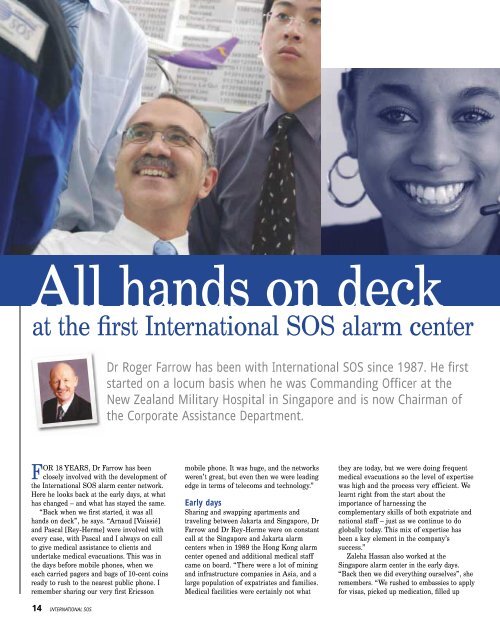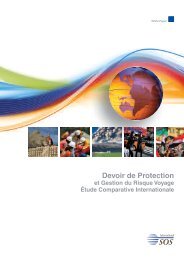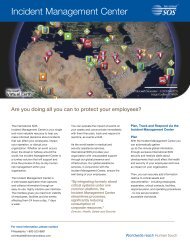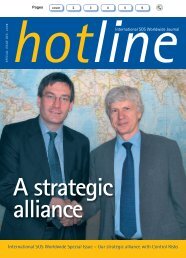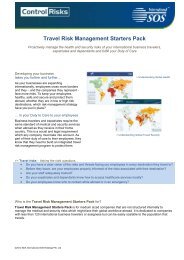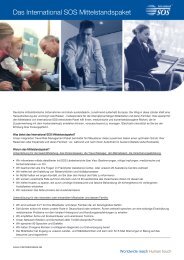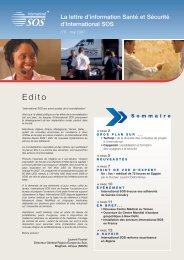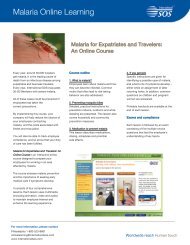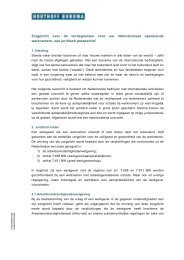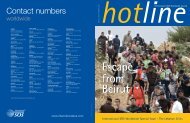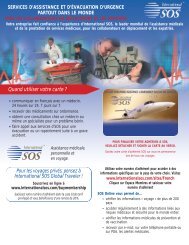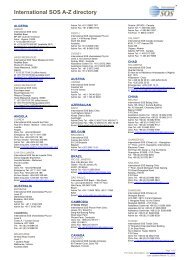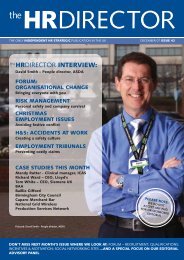Download PDF - International SOS
Download PDF - International SOS
Download PDF - International SOS
You also want an ePaper? Increase the reach of your titles
YUMPU automatically turns print PDFs into web optimized ePapers that Google loves.
All hands on deck<br />
at the first <strong>International</strong> <strong>SOS</strong> alarm center<br />
Dr Roger Farrow has been with <strong>International</strong> <strong>SOS</strong> since 1987. He first<br />
started on a locum basis when he was Commanding Officer at the<br />
New Zealand Military Hospital in Singapore and is now Chairman of<br />
the Corporate Assistance Department.<br />
FOR 18 YEARS, Dr Farrow has been<br />
closely involved with the development of<br />
the <strong>International</strong> <strong>SOS</strong> alarm center network.<br />
Here he looks back at the early days, at what<br />
has changed – and what has stayed the same.<br />
“Back when we first started, it was all<br />
hands on deck”, he says. “Arnaud [Vaissié]<br />
and Pascal [Rey-Herme] were involved with<br />
every case, with Pascal and I always on call<br />
to give medical assistance to clients and<br />
undertake medical evacuations. This was in<br />
the days before mobile phones, when we<br />
each carried pagers and bags of 10-cent coins<br />
ready to rush to the nearest public phone. I<br />
remember sharing our very first Ericsson<br />
mobile phone. It was huge, and the networks<br />
weren’t great, but even then we were leading<br />
edge in terms of telecoms and technology.”<br />
Early days<br />
Sharing and swapping apartments and<br />
traveling between Jakarta and Singapore, Dr<br />
Farrow and Dr Rey-Herme were on constant<br />
call at the Singapore and Jakarta alarm<br />
centers when in 1989 the Hong Kong alarm<br />
center opened and additional medical staff<br />
came on board. “There were a lot of mining<br />
and infrastructure companies in Asia, and a<br />
large population of expatriates and families.<br />
Medical facilities were certainly not what<br />
they are today, but we were doing frequent<br />
medical evacuations so the level of expertise<br />
was high and the process very efficient. We<br />
learnt right from the start about the<br />
importance of harnessing the<br />
complementary skills of both expatriate and<br />
national staff – just as we continue to do<br />
globally today. This mix of expertise has<br />
been a key element in the company’s<br />
success.”<br />
Zaleha Hassan also worked at the<br />
Singapore alarm center in the early days.<br />
“Back then we did everything ourselves”, she<br />
remembers. “We rushed to embassies to apply<br />
for visas, picked up medication, filled up<br />
14 INTERNATIONAL <strong>SOS</strong>


